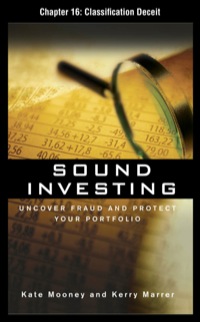Question
Please respond to both questions, thank you! Company G (G), an SEC registrant, is a global financial advisory and asset management firm. Company P (P),
Please respond to both questions, thank you!
Company G (G), an SEC registrant, is a global financial advisory and asset management firm. Company P (P), a private company, offers advisory services for (1) mergers, acquisitions, and divestitures; (2) capital structure (including initial public offerings); (3) government advisory, including strategic, finance and capital markets related policy considerations; and (4) restructurings. Case Facts On September 18, 20X8, (the Closing), G and P executed an acquisition agreement (the Agreement) whereby G acquired 100 percent of the outstanding shares of P (the Acquisition). At the time of close, P had 10 employees that had over 200 combined years of financial and strategic advisory experience. Company P was owned as follows:
Founder 85 percent.
Senior advisor 10 percent.
Other employees (four in total) 5 percent.
The purchase price was calculated using a revenue multiple that was established using market data at the midpoint and transferred in exchange for 100 percent of the outstanding shares of P. The total purchase price comprised the following:
Cash = $1 million.
Shares = 100,000 shares in G (worth $3.3 million).
Earnout Consideration = Up to 600,000 shares (valued at total of $20million).
o The Earnout Consideration will be contingent upon achievement of revenue hurdles over a period beginning on September 18, 20X8, and ending on December 31, 20X2 (Earnout Period).
o To the extent the performance targets below are achieved, Exchange Co shall deliver the relevant Earnout Shares to the Shareholders on a pro rata basis. However, if and to the extent certain performance targets described below are not achieved, in whole or in part, no Earnout Consideration will be paid.
First Earnout Consideration If revenue exceeds $10 million in the Earnout Period, the Shareholders will be entitled to 200,000 shares.
Second Earnout Consideration If revenue exceeds $20 million in the Earnout Period, the Shareholders will be entitled to an additional 200,000 shares.
Third Earnout Consideration If revenue exceeds $30 million in the Earnout Period, the Shareholders will be entitled to an additional 200,000 shares.
o The Shareholders are still entitled to the Earnout Consideration in the event that targets are met, but they are not employees of G at the time the Earnout Consideration is earned.
Other Key Facts
Company P meets the definition of a business under ASC 805.
Each employment agreement executed by G and the Shareholders contains compensation that is commensurate with the service each respective Shareholder is providing to G.
The Shareholders have at-will employment agreements with G.
If the Shareholders were to leave, G would be able to replace them with an existing G investment banker; therefore, the Shareholders are not integral to the future success of the acquired business.
The fair value of P was determined to be $24 million.
The Earnout Consideration is not being treated as compensation expense for tax purposes.
QUESTIONS
1. Should the Earnout Consideration to Shareholders be accounted for as purchase consideration in exchange for the Acquisition or as compensation for postcombination services?
2. If there was a change to the case facts, and the Shareholders were no longer entitled to the Earnout Consideration if they were not employees of G at the time the revenue targets were met, should the Earnout Consideration to the Shareholders be accounted for as purchase consideration in exchange for the Acquisition or as compensation for postcombination services?
Step by Step Solution
There are 3 Steps involved in it
Step: 1

Get Instant Access to Expert-Tailored Solutions
See step-by-step solutions with expert insights and AI powered tools for academic success
Step: 2

Step: 3

Ace Your Homework with AI
Get the answers you need in no time with our AI-driven, step-by-step assistance
Get Started


